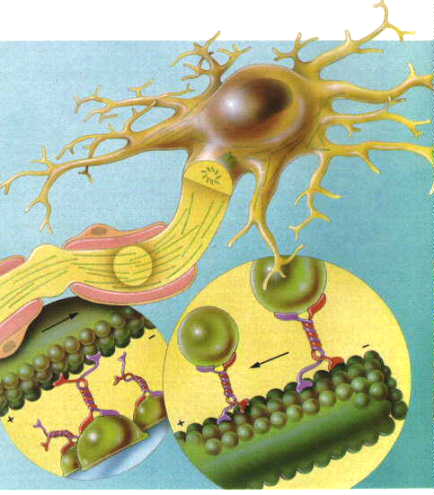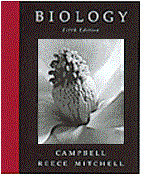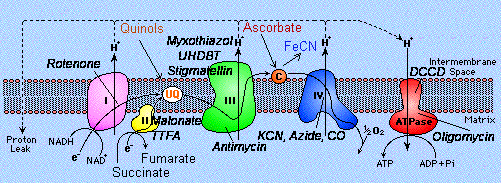 News
& Announcements!
News
& Announcements! Biology
111.002
Biology
111.002
1. Office hours are Tuesday & Thursday, 12:10 - 1:30 pm. If these times don't suit, please make an appointment.
2. Attendance at lecture is not required. But attendance for tests is another matter. Contact me as soon as possible if you find you must miss a test. Make-up tests taken in advance are generally equivalent to those administered to the class as a whole. But regardless of your excuse, the later the make-up test, the greater its difficulty.
3. Homework. You will notice that I have assigned chapters corresponding to each lecture topic. Please do the reading before we discuss the subject in class, or immediately thereafter. The questions at the end of each chapter are excellent practice for your tests.
4. Course grading. 3 midterms X 100 pts = 300
Comprehensive final = 200
500 course total
The Grading scale will be as follows: 90% will be the lowest A, 80% the lowest B, 70% the lowest C, and 60% the lowest D.
 5.
Textbook
- Biology, 5th Edition, by Campbell, Reece, and Mitchell.
There are a lot of valuable on-line resources at the textbook web page.
Click on the cover illustration at left, and check it out!
5.
Textbook
- Biology, 5th Edition, by Campbell, Reece, and Mitchell.
There are a lot of valuable on-line resources at the textbook web page.
Click on the cover illustration at left, and check it out!
6. Prerequisites & Corequisites. There are no prerequisites for Biology 111. But Biology 111 lecture and lab are corequisites; to be enrolled in one you must be enrolled in the other. A student who drops one of these two courses must also drop the other.
7. Labs begin the first full week
of class. Please purchase a Biology 111 Lab manual at the college
bookstore and bring it with you to your first meeting.
Interesting Links:
Access Excellence - a national educational resource for scientific information. Originally developed and launched by Genentech, and currently operated by the National Health Museum. Links to all manner of biological topics & news.
BioChemLinks - Biology and chemistry sites in a dozen categories are gathered here: general chemistry, organic chemistry, molecular biology, news, lab safety, ethics, careers, and more!
Online Biology Textbook - A huge amount of information, in 53 clickable chapters.
MIT Hypertextbook - Chapters on chemistry, large molecules, cell biology, enzyme biochemistry, glycolysis & Krebs cycle, photosynthesis, genetics, and more!
The Biology Project - an interactive online resource for learning biology developed at The University of Arizona.
Chemicool - The clickable periodic table with information on all the elements.
Molecular Models for Biochemistry - A wonderful site for learning about macromolecular structure. Amino acids & proteins, nucleic acids, glycolysis intermediates, etc. Viewing most molecules requires special plug-ins...see the site.
Introduction to Glycolysis Home Page - A general overview of Glycolysis, featuring videos.
Step by Step Krebs Cycle - Browse the ten steps of reaction through three strands: a fact sheet gives the name of each enzyme, reaction type, mechanism and prosthetic group; the reaction shows the structure of substrate and product(s) and an animation presents a short movie clip showing the reaction.
The Virtual Cell - Select an action (eg, zoom, cut, turn), a method of viewing, and a search item (eg, nucleus, chloroplast). Then click the cell's image and watch the results.
Cells Alive - This is a great site to see cells in action. The topics (Anatomy of a Splinter, When a Cell Commits Suicide, This Strain Kills White Blood Cells, and others) have descriptions of each step of their process, and animated gifs and Quick Time movies to see actual cells! It's a really interesting place to see, up-close, what cells do.
Blazing a Genetic Trail - Beautifully illustrated magazine with articles on causes and cures for genetic disease.
Genetics Education Center - All manner of links on human genetics and the Human Genome Project, brought to you by the University of Kansas Medical Center.
Other Genetic Links - Lots of cool sites can be visited from the College of Charleston Genetics 311 page.

A cartoon representation of the mitochondrial electron transfer chain. The main complexes are shown, with their substrates in black. Inhibitors are shown in bold italic, approximately at their sites of action; electron donors (red) and acceptors (blue) allowing dissection of partial reactions of the chain are also shown.